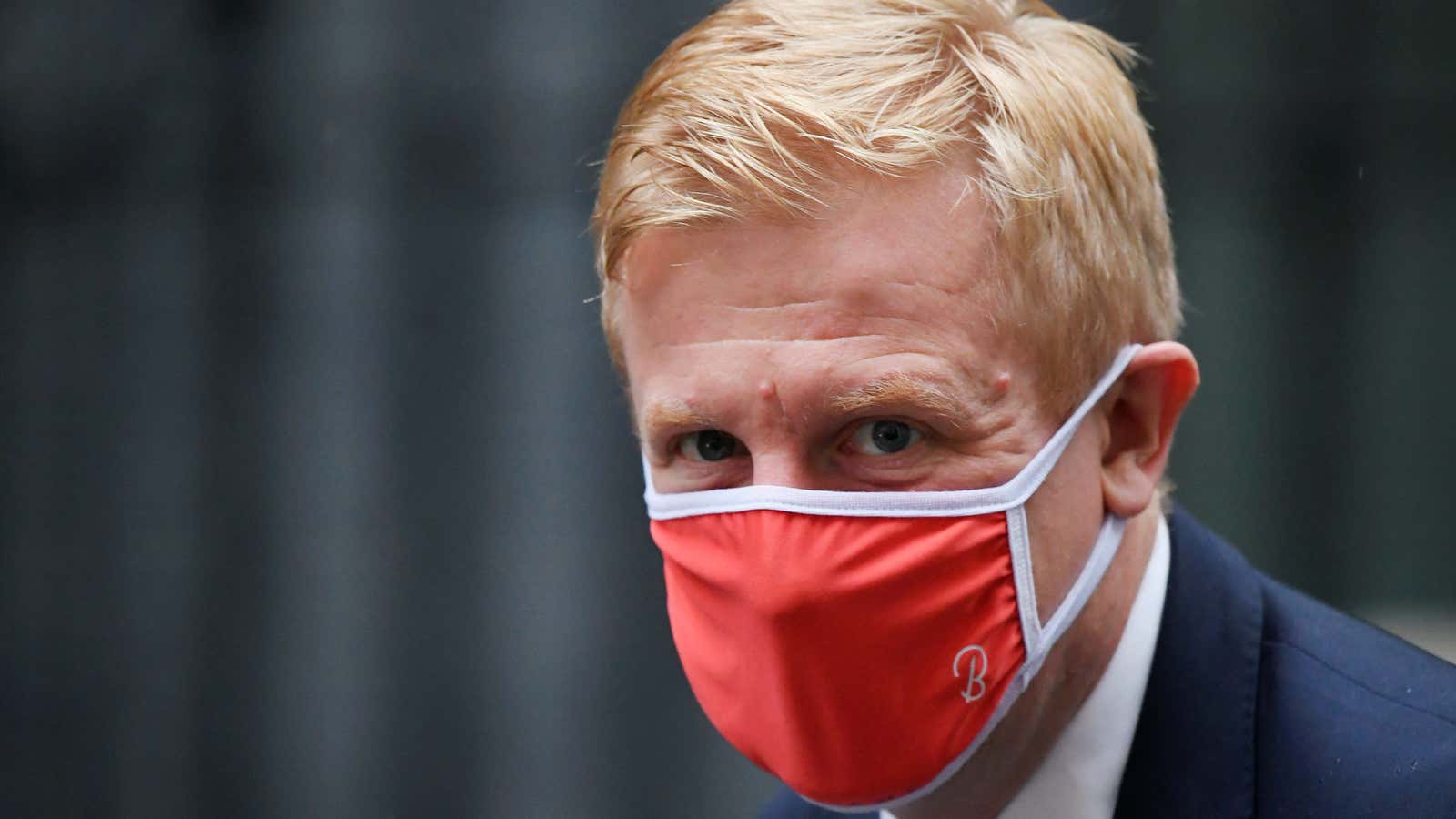The British government will ban the installation of new Huawei gear in UK telecommunications networks by September of 2021—far sooner than expected—in a move designed to appease rebels from prime minister Boris Johnson’s own Conservative party in Parliament.
The news was first reported by the Times of London and confirmed to Quartz last week by individuals with knowledge of the matter. The UK government’s Department for Digital, Culture, Media, and Sport (DCMS) formally announced the news today (Nov. 30).
In January, Johnson announced that Huawei would only be allowed to supply up to 35% of non-sensitive parts of the UK’s 5G network. Britain’s National Cyber Security Center (NCSC) contends that the Chinese telecoms giant poses a threat because its “cyber security and engineering quality is low and its processes opaque,” and because it could be compelled under Chinese law to “act in a way that is harmful to the UK.” (Huawei says it “has never received such a request” and “would categorically refuse to comply” if it did.)
In March, some Conservative members of Parliament rebelled against their government by adding an amendment to an existing bill on broadband access that would have required UK operators to eliminate Huawei gear by the end of 2022. They failed. But in May, the US banned Huawei from buying American-made chips, and NCSC said this made Huawei too much of a security risk.
Under pressure from anti-China rebels in Parliament—whose ranks have grown as relations with Beijing worsened—the government announced in July that “high-risk” vendors would be banned from the UK’s future 5G networks and their existing equipment phased out by 2027.
Huawei vice president and head of UK operations Victor Zhang wrote in a press release earlier this month: “This decision is politically-motivated and not based on a fair evaluation of the risks. It does not serve anyone’s best interests as it would move Britain into the digital slow lane and put at risk the Government’s leveling up agenda.”
Last week, Minister for Digital Infrastructure Matt Warman tabled a proposal for the long-awaited Telecommunications Security Bill. It will enshrine the Huawei ban into law and set out harsh penalties for non-compliance. It also gives government the power to issue “directions” on national security grounds that limit operators’ “use of goods, services, or facilities supplied, provided, or made available by” vendors like Huawei.
The government will use its power to issue such a “designated vendor direction,” preventing operators from installing new Huawei gear by September of 2021. This announcement will be debated during the bill’s second reading today (Nov. 30).
While 2021 is earlier than even Tory rebels expected, the government’s proposal contains an exemption that is likely to leave some of them feeling unsatisfied. Operators will be prevented from using Huawei services after March 31, 2021, “except for Huawei Specialist Maintenance Services provided in relation to Huawei equipment already installed in the network” prior to that date. This means existing Huawei kit can be repaired by Huawei, at least until 2027. Tory rebels had hoped that the government would ban new kit installation and repairs of existing kit by 2022, meaning that once kit broke down it could no longer be fixed—effectively bringing up the 2027 phase-out deadline.
Under the government’s existing proposal, telecommunication providers like Vodafone or Three were already prevented from buying new Huawei gear after Dec. 31 of this year. The aim of bringing everything forward was to address concerns among Conservative backbenchers that operators would buy Huawei equipment at reduced costs until the end of this year, and then use the stockpiled equipment until they were forced to strip it out by 2027. The MPs, many of whom felt that 2027 was too late for the phase-out, hope it will further dissuade operators from buying Chinese-made gear at all.
This story was updated with details of the government’s proposal on Huawei, announced today (Nov. 30).
